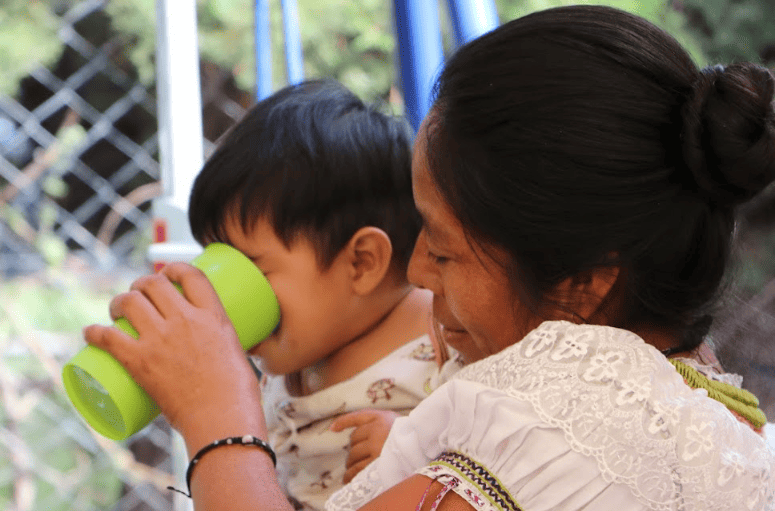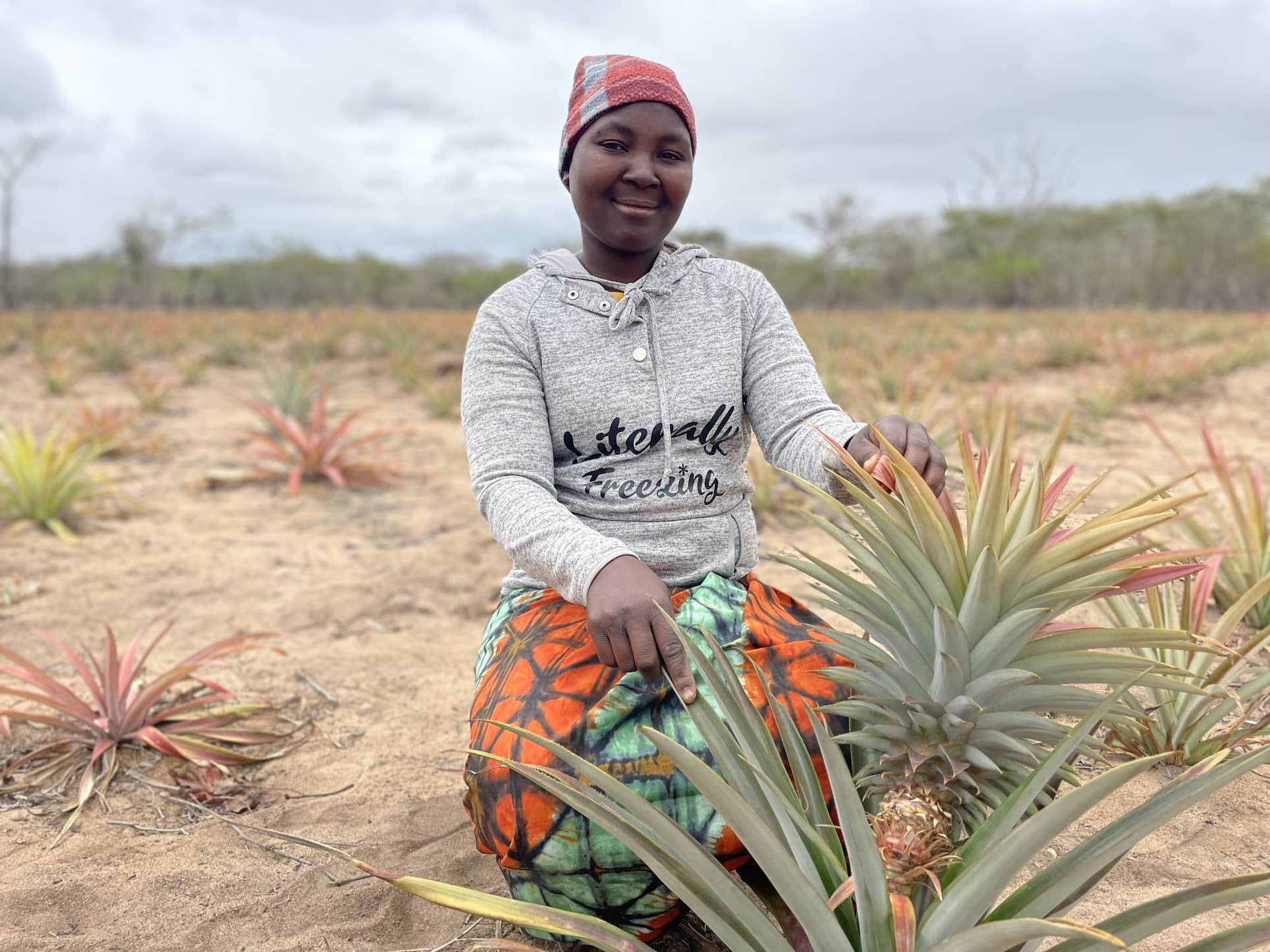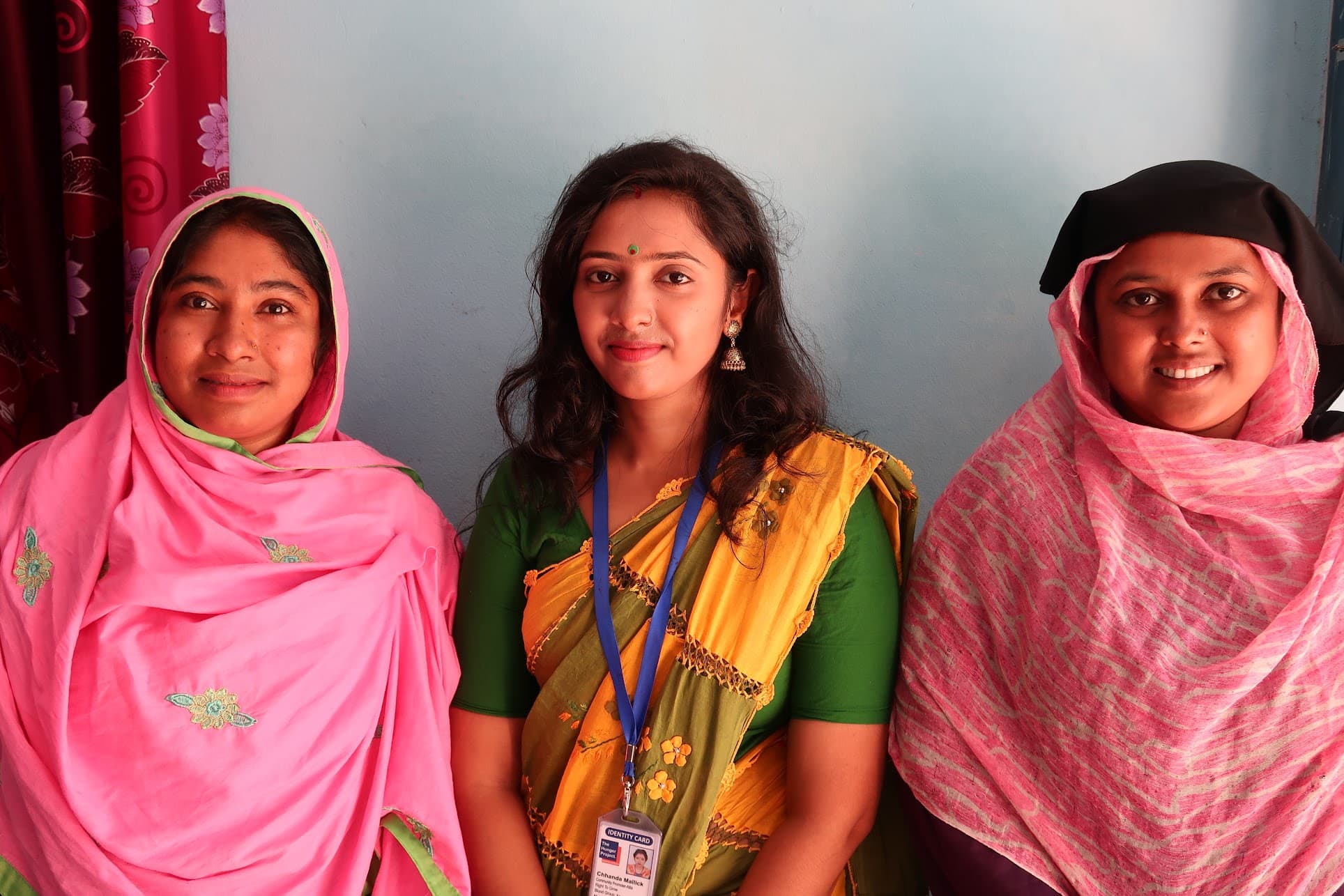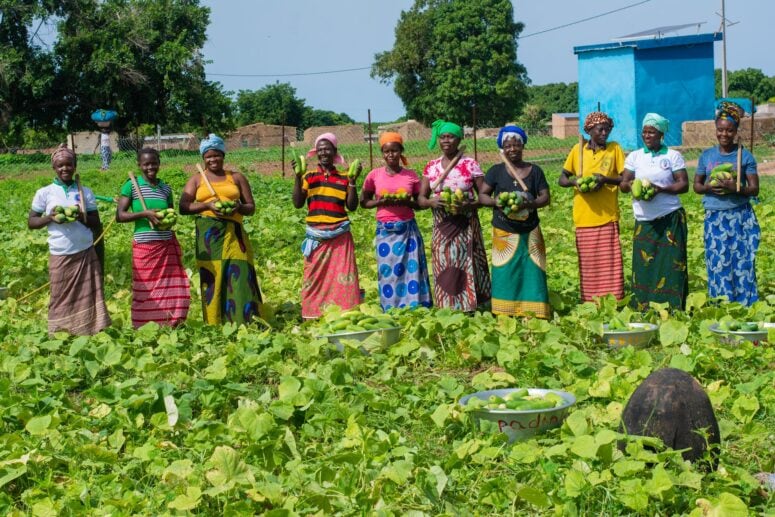To create a world without hunger, we must transform the systems of inequity that cause it to persist.
Climate change, gender inequity, and the cycle of malnutrition are all major drivers of hunger in our world. This year, our work across these three sectors deepened, amplifying our impact in rural communities around the world.
Check out some of the highlights from our programs in 2023 below!
IMPROVED NUTRITION

Global Alliance for Sustainable Nutrition
In collaboration with The Church of Jesus Christ of Latter-day Saints, we launched a program across seven countries in March 2023 to support the nutritional health of mothers and children. Across Bangladesh, Benin, Mexico, Mozambique, Senegal, Uganda and Zambia our teams have established strong consultative and working partnerships with local, district and national governments to advance sustainable, community-led nutrition across nearly 100 sites. Our partners range from private companies, including Bangladesh-based Renata Limited, to national governments to international organizations like UNICEF. Through these relationships we are creating networks of trained nutrition educators and a supply and distribution chain for micronutrient supplements, where available. In the first five months of the program, over 125,000 people accessed trainings and resources to support healthy mothers and children. This program across all the regions where we work has deepened our impact at a whole new scale.
Enhancing nutrition for displaced people and host communities in Ethiopia
As of June 2023, about 4.4 million Ethiopians were internally displaced, either by conflict or climate conditions, and are now . They are living in host communities throughout the country. Using the Buyo Epicenter in Amhara Regional State as a platform, we launched a new initiative in 2023 to enhance nutrition of children under five who are internally displaced or living in host communities. Through this initiative, we trained 42 Nutrition Animators who then went into the communities to facilitate sessions on nutrition. Over 420 families participated in intensive training on nutrition and nutrition-sensitive agriculture and over 840 families received educational materials. We are particularly proud that we were able to connect 31 lactating mothers who had been displaced with emergency food support for their malnourished children.
Right2Grow Midterm Review
2023 marks the halfway point for our Right2Grow partnership. This consortium unites the strengths of The Hunger Project and five other international NGOs and over 25 local civil society organizations across Bangladesh, Burkina Faso, Ethiopia, Mali, South Sudan, and Uganda to strengthen locally-led advocacy to improve nutrition and access to basic water, sanitation and hygiene (WASH) services. Through a midterm review, we identified several exciting results. In Uganda, the CBO/CSO Forum established by Right2Grow demanded the setup of demonstration gardens in primary schools for learning purposes through their District Nutrition Coordination Committee. When presented to the District Council the resolution was passed. The MTR also showed clear evidence of allocation of budgets to nutrition issues at district and sub-county levels in Uganda. In Bangladesh, previously Union Parishads prepared their fiscal budgets without community involvement.
Through Right2Grow training and advocacy this has changed and as a result, there was an average increase of 2.56% in local government budgets for WASH and nutrition services in FY2022-2023 compared to the previous year across 40 Union Parishads. We will build on these results over the next two years and continue to collaborate with and invest in communities, community-based organizations, and civil society organizations to improve food security, nutrition, and hygiene in the six countries and internationally.
Water First
Access to clean water is not only a fundamental human right, but also a key factor in improving nutrition, preventing disease, and enabling education and work. However, according to the World Health Organization, 2 billion people do not have access to safe drinking water. At each of our epicenter sites, communities have access to clean water. For many, this is still far from their homes and collecting water continues to take hours of their day. Women and children are the most likely to be responsible for retrieving water for the household, and this has a number of consequences. It means children miss out on a significant amount of time in school, and girls are left vulnerable and at risk of violence as they travel to and from distant water sources.
Through Water First, we work closely with government and local partner organizations to identify and implement appropriate water solutions in the villages surrounding epicenters. Utilizing our expertise in community-led development, we also incorporate capacity-building and leadership trainings to ensure that communities have the knowledge, skills, and expertise needed to manage, maintain, and repair water solutions, ensuring long-term sustainability of the project’s impact. This project started in 2022 in Ethiopia and Uganda and in 2023 it expanded to epicenters in Malawi and Benin.
CLIMATE RESILIENCE

Conserving Biodiversity in Mozambique
We are committed to working with communities to preserve and enhance local biodiversity. For several years, we have had a successful partnership with Dioraphte Foundation supporting the communities around the African Parks Majete Reserve in Malawi. Building on this expertise, we are expanding this program model in partnership with Peace Parks Foundation to Zinave National Park in Mozambique. In 2023, we started on-the-ground implementation, including building in the remote rural communities of Maculuve and Malindile, where about 10,500 people live. Despite the flooding and damage caused by Hurricane Freddy early this year, work in these communities is gaining momentum. The community has prepared land in both communities for the future epicenter buildings and demonstration fields. These demonstration fields are in use. There, we are introducing new techniques and new crops, such as pineapple, which is more resistant to the changing climate. Farmers can take what they learn in the demonstration gardens and try it on their own land. More and more people are actively involved, learning about new crops, using the new farming techniques and finding new ways to generate income.
THP and Peace Parks are not merely conserving land; through this partnership, we are fostering resilience and self-sufficiency. We are integrating lessons learned in the community into the curriculum of the Southern African Wildlife College, which is training the next generation of conservation leaders. This ensures that the knowledge gained from Maculuve becomes a valuable resource for future generations, contributing to capacity building and disseminating best practices in shaping future park managers throughout Africa.
Empowering Women Leaders to Build Climate Resilience
GENDER

Promoting Peace and Democracy in Bangladesh
The program complements another initiative we have undertaken in Bangladesh in 2023 that aims to enhance voter participation and multi-party engagement in the 2023-2024 national elections. This project is being done in partnership with IFES and USAID to strengthen the capacity of Bangladeshi political parties to meet civil society’s demands for citizen-focused political platforms, facilitate access to accurate information about policy and political processes, and promoting nonviolent electoral participation among citizens and political parties at the local and national levels.
Citi Foundation Global Innovation Challenge Award
Watch the LIVE announcement during the Global Citizen Festval 2023, here.
We are looking forward to launching powerfully into 2024 and deepening our impact in every country where we work.
Photos (top to bottom): Women smiling and holding their vegetable harvest from their gardens in Burkina Faso; A mother feeding her son in Mexico; A woman kneeling next to her pineapple harvest in Mozambique. Photos for The Hunger Project, 2023

